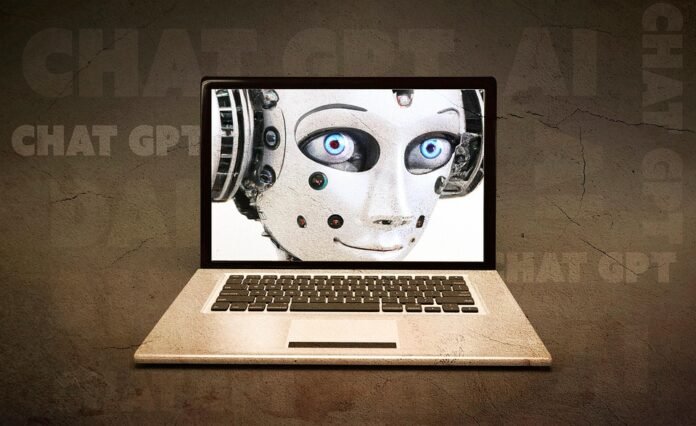Of course. Here is an article about the impact of AI on the workforce, business, and economic structures.
The Algorithmic Age: How AI is Reshaping Work, Business, and Our Economic Future
For decades, Artificial Intelligence was the stuff of science fiction—a distant concept of sentient machines and futuristic utopias or dystopias. Today, AI is no longer a far-off prediction; it’s a present-day reality embedded in our daily lives. From the algorithms that recommend our next purchase to the generative models like ChatGPT that draft our emails, AI has transitioned from a niche technology to a foundational force. Like the industrial and internet revolutions before it, AI is not just a new tool but a catalyst for profound change, fundamentally reshaping the workforce, reinventing business, and shaking the very bedrock of our economic structures.
The Transformation of the Workforce: Beyond Automation
The most immediate and personal conversation around AI centers on jobs. The initial fear is one of mass displacement, and for certain roles, this concern is valid. AI excels at automating routine, predictable tasks—data entry, basic customer service, and report generation are all being streamlined by intelligent systems. However, the narrative of simple replacement is incomplete. The more nuanced and powerful trend is augmentation.
AI is becoming a “co-pilot” for a vast array of professions. Programmers use AI assistants like GitHub Copilot to write and debug code faster. Marketers leverage AI to generate campaign ideas and analyze consumer sentiment at a scale previously unimaginable. Doctors are using AI to analyze medical images, spotting patterns the human eye might miss. This human-AI collaboration enhances productivity and frees up professionals to focus on tasks that require uniquely human skills: strategic thinking, creativity, emotional intelligence, and complex problem-solving.
This shift creates a clear demand for a new kind of workforce. As old jobs evolve, new ones are born. “Prompt engineer,” “AI ethicist,” and “machine learning operations specialist” are titles that didn’t exist a few years ago. The critical challenge is no longer just education, but continuous reskilling and upskilling. The future of work belongs to those who can learn to work with AI, leveraging its power as a tool to amplify their own expertise.
The Reinvention of Business: From Efficiency to Innovation
For the business world, AI is the most powerful engine of competitive advantage to emerge in a generation. Its impact can be seen across three key areas:
-
Hyper-Efficient Operations: At a foundational level, AI optimizes everything. It refines supply chains by predicting demand with uncanny accuracy, enables predictive maintenance to fix machinery before it breaks, and automates back-office processes, drastically cutting operational costs and improving efficiency.
-
Unprecedented Personalization: The era of one-size-fits-all marketing is over. AI allows businesses to understand their customers on an individual level. Recommendation engines on platforms like Netflix and Amazon are just the beginning. Companies can now deliver hyper-personalized experiences, from custom-tailored product suggestions to dynamic pricing and 24/7 intelligent customer support via chatbots.
-
Data-Driven Strategy and Innovation: Perhaps most transformatively, AI is changing how businesses make decisions. By analyzing massive datasets, AI can identify market trends, forecast economic shifts, and uncover strategic opportunities invisible to human analysts. This is not just about improving existing models; it’s about creating entirely new ones. AI is accelerating R&D in fields like drug discovery and materials science and enabling the rise of new “AI-as-a-Service” companies, fundamentally altering the corporate landscape.
This creates a “winner-takes-most” dynamic. Companies with access to the best data and the most sophisticated AI models can create a virtuous cycle of improvement, widening the gap between themselves and their competitors.
The Shifting Economic Bedrock: Growth, Gaps, and Governance
The cumulative effect of these changes is a seismic shift in our broader economic structures. The promise is one of massive productivity growth. By automating tasks and augmenting human labor, AI has the potential to supercharge economic output, leading to new wealth and higher standards of living.
However, this potential comes with significant risks, primarily the threat of deepening economic inequality. The gains from AI-driven productivity may flow disproportionately to the owners of capital—the companies that develop and deploy AI systems—rather than to labor. This could exacerbate the gap between high-skilled workers who can command a premium for their AI-augmented abilities and low-skilled workers whose jobs are most vulnerable to automation.
Furthermore, the AI revolution is fueling market concentration. The development of powerful, foundational AI models requires immense computational power and vast datasets, resources available to only a handful of tech giants. This creates a risk of digital monopolies, where a few firms control the core technology upon which entire industries depend, stifling innovation and competition.
These macroeconomic shifts place a new and urgent responsibility on governments and policymakers. The conversation must move toward:
- Modernizing Social Safety Nets: Exploring concepts like Universal Basic Income (UBI), portable benefits, and lifelong learning accounts to support workers through career transitions.
- Investing in Education: Reforming curricula to emphasize critical thinking, digital literacy, and adaptive skills from an early age.
- Rethinking Regulation: Developing new antitrust frameworks for the digital age and establishing clear guidelines for the ethical and transparent use of AI to prevent bias and ensure accountability.
Navigating Our Algorithmic Future
AI is not a force of nature we must passively accept; it is a technology we are actively building and shaping. The path forward is not to fear or halt its progress, but to steer it with intention. This is a shared responsibility. Business leaders must prioritize ethical implementation and invest in their workforce. Educators must prepare students for a collaborative future with machines. Policymakers must build the guardrails that ensure the benefits of AI are shared broadly.
The Algorithmic Age is upon us. Its ultimate impact—whether it leads to an era of unprecedented prosperity and human achievement or one of greater division and inequality—is not yet written. The choices we make today will determine the world we inhabit tomorrow.

